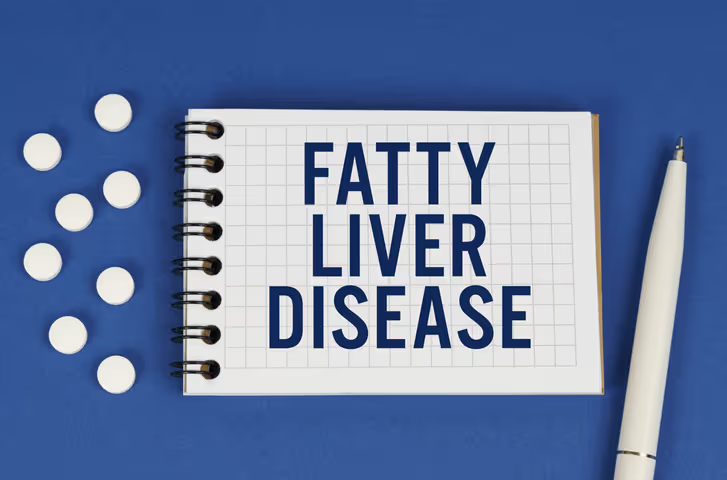Knee pain is a common condition that can make everyday activities like walking, climbing stairs, or standing difficult. Many people with knee pain wonder if losing weight could help ease their discomfort. In this blog, we'll explore how excess weight affects the knees, whether weight loss can provide pain relief, and how to achieve sustainable weight loss to help improve knee pain.
The link between weight loss and knee pain
Living with excess weight can put additional stress on the knees, increasing the risk of joint damage and pain. Understanding how weight loss can reduce this pressure is key to managing and potentially alleviating knee discomfort.
How excess weight affects your knees
Carrying excess weight can significantly increase the amount of stress placed on your knee joints, which can lead to discomfort and potentially long-term damage. For every pound of body weight, the knees endure approximately 4 pounds of added pressure during walking. This means that just 10 extra pounds can result in an additional 40 pounds of force on each knee with every step.
Over time, this repeated strain on your knees can contribute to the breakdown of cartilage, the tissue that cushions your joints. This can lead to conditions such as osteoarthritis, where the protective cartilage deteriorates, causing pain, stiffness, and swelling. According to a study published in the National Institutes of Health, individuals living with overweight or obesity are at a significantly higher risk for developing osteoarthritis, especially in the knee joints.
Beyond the mechanical effects, a key driver of knee pain in osteoarthritis is inflammation, which is influenced by excess weight. Fat tissue, particularly visceral fat, produces inflammatory molecules called cytokines and adipokines, these molecules can heighten inflammation in the joints, leading to cartilage breakdown and accelerated joint degeneration. This chronic, low-grade inflammation is one reason why people living with obesity often experience more severe symptoms of osteoarthritis.
Over time, the strain on your knees can lead to further joint damage, making knee pain a long-term challenge if left unaddressed. However, there is a way to alleviate knee pain –losing even a small amount of weight can reduce stress on the knees, help slow joint damage, and improve mobility, making daily life more comfortable and enjoyable.
Will weight loss help knee pain?
Studies show that even modest weight loss—around 5-10% of your body weight—can lead to significant improvements in joint function and comfort. For example, losing just 10 pounds can reduce the pressure on your knees by 40 pounds with every step, which can make a noticeable difference in pain and mobility. Weight loss can also help reduce systemic inflammation, which is often a major contributor to joint pain. Fat tissue produces inflammatory molecules that can aggravate conditions like osteoarthritis. When you lose weight, you lower the production of these inflammatory molecules, which may help ease pain and swelling in the knees. This reduction in inflammation plays a vital role in supporting joint healing and improving mobility.
Benefits of weight loss for knee pain relief
Losing weight can significantly reduce knee pain, taking pressure off your joints and helping you move more comfortably. Below, we’ll dive deeper into the short-term and long-term benefits of weight loss for your knees and overall well-being.
Short-term benefits of weight loss for knee pain
- Reduced inflammation: Weight loss can help lower inflammation around the knee joints, therefore decreasing symptoms of pain and swelling.
- Better mobility: As pressure on the knees decreases, movement becomes easier, making daily activities like walking and climbing stairs less painful.
- Pain-free movement: The combination of lowering the mechanical load on the knees and reducing inflammation helps reduce knee pain.
Long-term benefits of weight loss for knee pain
- Long-term prevention of further joint damage: Losing weight reduces the ongoing stress on the knee joints, helping to prevent the worsening of conditions like osteoarthritis.
- Lower the risk of needing surgical treatment: In this study, weight loss of around 7.5% was found to reduce the risk for knee replacement surgery.
Work towards your goal of no knee pain after weight loss
Weight loss is a journey that involves a combination of healthy nutrition, regular exercise, and behavior changes to support healthy habits. If you struggle with knee pain and have excess weight, losing weight could be a way to help you work towards living pain-free. For some, medical weight loss treatment and personalized support can help achieve lasting weight loss and knee pain relief, especially if losing weight on your own has been difficult.
Why consider medical weight loss?
Medical weight loss is where a patient works with healthcare professionals (typically a doctor and Registered Dietitian) to lose weight. Science-based medical weight loss programs take into account your unique health conditions, lifestyle, and specific weight loss goals. Medical weight loss treatment includes the key pillars of weight management: nutrition, physical activity and behavior change, and, if appropriate, FDA-approved medication may be prescribed for additional support after a careful review of your medical history.
Form Health is a science-based telehealth medical weight loss practice where patients work one-on-one with their team of medical professionals including a Board-certified obesity medicine physcian and Registered Dietitian. Treatment plans are tailored to individual needs, ensuring long-term success. By having expert guidance every step of the way, you can feel confident that you're on a safe and efficient path to achieving the results you desire.
5 Steps to take for healthier knees and a healthier you
- Consult a healthcare professional: Speak to your clinician about your knee pain, and ask if weight loss may help improve your symptoms. Together, you can work to create a treatment plan that works for you.
- Set achievable weight loss goals: Aim for small, realistic weight loss targets to reduce knee stress and improve mobility. Try setting S.M.A.R.T. goals to make small lifestyle changes that will lead to a big impact on your health.
- Make small nutritional changes: Try to reduce processed foods and sugary drinks in your diet, and focus on anti-inflammatory foods like fruit, vegetables and legumes. Enjoy healthy fats in moderation such as fatty fish, avocado, nuts, seeds, olive oil.
- Incorporate low-impact exercises: Incorporate low-impact exercises into your routine such as swimming, cycling, or walking to strengthen muscles without straining your knees.
- Consider medical weight loss programs: A medical weight loss program can provide science-based treatment and support from specialists to achieve your weight loss and health goals. It may also be a good choice if you have underlying health conditions affecting your weight loss efforts or related to your excess weight.
FAQs about weight loss and knee pain
Below are a few frequently asked questions that patients have about weight loss and knee pain.
Will weight loss help knee pain even if my pain is caused by arthritis?
Yes, weight loss can help knee pain even if it is caused by arthritis. Reducing excess weight alleviates the pressure on your knee joints and reduces inflammation, leading to less pain and improved mobility.
Can knee pain persist after weight loss?
In some cases, knee pain can persist after weight loss. Residual pain may indicate other medical conditions and it is important to consult a doctor for further evaluation and appropriate treatment.
Is medical weight loss right for me?
Medical weight loss may be right for you if you’ve tried different methods of losing weight in the past and haven’t found success. It may also be helpful if you have underlying health conditions affecting your weight loss efforts or are experiencing medical problems related to your weight. Form Health offers science-based medical weight loss through telemedicine. Our obesity medicine physicians and Registered Dietitians guide patients through safe and effective strategies to achieve lasting results. With your Form Health Care Team, you will create a personalized plan that addresses behavioral health, nutrition, physical activity, and may include FDA-approved medication, if appropriate.
Reduce knee pain through weight loss today
Weight loss can significantly reduce knee pain by relieving pressure on the joints and reducing inflammation. If you're struggling to lose weight or manage knee pain, medical weight loss offers a personalized approach that can help you achieve lasting results. To learn more about how Form Health can help you achieve your goals, sign up or send us a message today. Let us help you take the first step toward a pain-free, healthier future.




